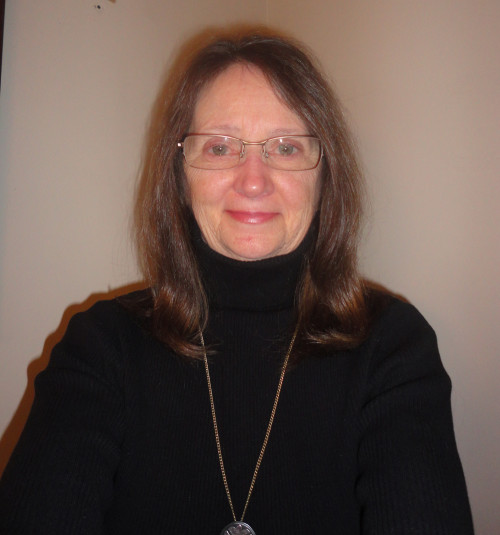Another friend of The Teilhard de Chardin Project willing to share what Teilhard has come to mean to her is Ellie Stock. Welcome, Ellie.
We would like to hear your story, too. Write frankfrost@teilhardproject.com.
I am a “retired” Presbyterian pastor [PC(USA)]. Like many kids, when I was growing up, I had a fossil and rock collection, liked dinosaurs and thought I might be a paleontologist someday. By late elementary school, I was fascinated with evolution and had my artist father draw a picture of “the missing link” that I took to school and which the teacher put up on the bulletin board. During that same time, I grew up in the Presbyterian Church, with a traditional understanding of Christianity. I enjoyed biology and chemistry in high school and a college geology course gave me a new appreciation for Earth’s eras and ongoing transformation. In 1967, this interest was rekindled in a new way when I “discovered” Chardin while creating a display of newly arrived books when I was working in the Pittsburgh Theological Seminary library. Several of Chardin’s books were among those, and so I checked them out and read them. In the midst of traditional theology and its penchant for separating science and theology, Chardin was like a breath of fresh air. I have shared with people that Chardin changed my life and ultimately “saved” my seminary experience. I had been struggling with traditional language/concepts and trying to rearticulate my understanding of my faith using a different paradigm and different language. I almost failed my systematic theology course because, in a major required paper, I tried to articulate (not very well, I admit) the category of sin, using potential and kinetic energy and connectionalism with others/world/past/present future. So, in one sense, discovering Chardin almost did me in, as I experienced a new paradigm but dealt with a seminary/church immersed in another one. On the other hand, his writings were a bright light and motivating force that helped sustain my studies and introduced me to other writers/philosophers, etc. who thought similarly.
My next encounter with Chardin was working with The Ecumenical Institute/The Institute of Cultural Affairs which focused first on “re-imagining” adult education/engagement in the world (using Bultmann, Tillich, Bonhoeffer, Niebuhr, Chardin and others) in congregations, and then grounded this in church renewal and local/global community partnerships and development work, demonstrating in a practical way “building the Earth”. Since then I have tried in my work, not always as successfully as I would have liked, to integrate or include a dialogue between science and theology/religion/spirituality and have been blessed by others whose lives have been touched and shaped by Chardin and who have contributed much wisdom toward the understanding of this new paradigm: Thomas Berry, Mary Evelyn Tucker/John Grim, Sr. Miriam MacGillis, Brian Swimme, Michael Dowd, John Cock, Jim Miller (Presbyterian Association for Science, Technology and the Christian Faith), Wendell Berry, and many other individuals and groups.
In St Louis I have had a lot of fun doing classes on evolution, world religions and their perspectives, and other “edge” studies related to science and Christianity. And this continues in a different way as we focus on our ecological work here. Over the years this journey has inspired me to write songs and poems that I sometimes use for events, programs and retreats. Some have been published and/or used by various groups and individuals.
In the future I am looking forward to continuing the journey of understanding and integrating science and religion in ways that help us, as human beings, live and thrive more creatively and harmoniously with Earth and all creation.





